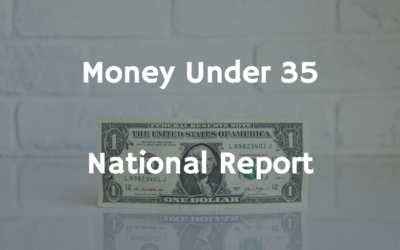
Recently the National Association of Student Financial Aid Administrators wrote a useful article highlighting a new study from Navient, the nation’s largest student loan servicing business.
College Parents of America agrees with NASFAA’s author that “earning a college degree – even if it means taking out student loans to do so – can be the ticket to maintaining a strong financial status, finding a job, owning a home, and earning higher wages.”
In its third annual Money Under 35 study, Navient – and the research firm Ipsos – found young adults who earn a college degree are more likely to be in “good” or “excellent” financial health. The study is based on a survey of more than 3,000 adults between the ages of 22 and 35, across all levels of educational attainment.
 The study rated the respondents’ financial health based on its Financial Health Index, which measures factors such as income level, debt amounts, savings amounts, and other “attitudinal and behavioral predispositions.” The respondents also rated their own financial health on a scale of 1 to10. Overall, the study found that 83 percent of young adults are in “good” or “excellent” financial health, compared with 85 percent in 2016. But obtaining a college degree made a noticeable difference: 89 percent of degree-holders were considered in “good” or “excellent” financial health, compared with 79 percent of non-degree-holders.
The study rated the respondents’ financial health based on its Financial Health Index, which measures factors such as income level, debt amounts, savings amounts, and other “attitudinal and behavioral predispositions.” The respondents also rated their own financial health on a scale of 1 to10. Overall, the study found that 83 percent of young adults are in “good” or “excellent” financial health, compared with 85 percent in 2016. But obtaining a college degree made a noticeable difference: 89 percent of degree-holders were considered in “good” or “excellent” financial health, compared with 79 percent of non-degree-holders.
The report confirms that attending college affords myriad benefits later in life to those who complete their degree. “The clear majority of young adults who have earned a bachelor’s degree or higher say that it was a worthwhile investment (78%). In contrast, just 43 percent of those who attended some college but stopped before completing their degree agree that it was a worthwhile investment.”
Respondents with a college degree were also more optimistic about their future job prospects and earnings and were more likely to earn a higher median income. Degree-holders were also more likely to own a home and to say they believed college was a worthwhile investment, regardless of whether they borrowed. Half of all degree-holders and 46 percent of degree-holders who borrowed said they own a home, compared with 34 percent of those who left college without a degree. Likewise, 79 percent of all degree-holders and 75 percent of degree-holders who borrowed said college was a worthwhile investment, compared with 43 percent of non-degree-holders.
“A college degree is a powerful asset,” said Jack Remondi, President & CEO of Navient, in a statement. “But, borrowing for college and not graduating, has lasting negative consequences. Young adults who attended some college are only half as likely to feel financially stable compared to degree holders. Students and families need to have access to better upfront information to understand the cost of earning a degree and what it’s going to take to get there.”
College Parents of America has a key priority to help students and their families to understand the importance of college completion. We have often said that student loan defaults are actually a symptom of the larger problem – college completion. We welcome suggestions on how we can further highlight and serve the needs of students so that they can successfully achieve their academic goals and complete their degrees. The results, as this study indicates, are well worth the investment and effort.



